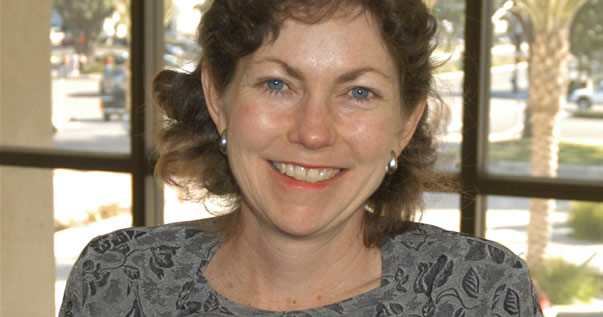Fulbright Scholar
Economics Professor to Study Honduras Immigration
December 19, 2006
By Pam McLaren
What happens when immigrants leave their native countries in western Central America? Why do they leave and what happens with the money they send home?
Denise Stanley, associate professor of economics, will be traveling to Honduras in January as a Fulbright Scholar. While there, she will be researching why immigrants leave home, the impact of their leaving and how their remittances are used.
“While the effects of international immigration in the U.S. remains a controversial issue, its impact on sending countries is often taken as positive,” noted the economist, who conducts studies of non-traditional exports in Central America, as well as on regional economic analysis.
“However, growing concerns about family disintegration, costs of transmitting remittances and the productive use of remittances have arisen in the Honduran press. There are many possible questions around the effects of remittances in Central America, including how remittances reduce absolute poverty.
“I will be mainly looking at the economic growth impacts,” said Stanley. “Can having people immigrate to the United States and sending remittances to their families be good strategy for long-term growth?”
One part of the equation is what is done with the money that flows from the immigrants to home. “Are the funds being used to improve the farm or village, or is the money being used to purchase imports?
“If the remittances are used to purchase fencing materials — barbed wired happens to be made in Honduras — then the money creates demand in jobs — it pays for so many hours of work in the local factory,” she explained. “If the money is paid to purchase a TV — an imported good — the funds may pay for a week’s worth of time for someone outside the country.”
Stanley noted that that the average farm size in the region is about 10 hectares, or a little less than 25 acres. There is also little manufacturing. “Villages with bad corn yields were most likely to have people leave,” she said. “In these countries it’s very much like it was during the dust bowl era when farmers had very little in the way of safety nets to protect them.”
The researcher noted that the issue raises several questions: How much can remittances slow migration? Does it help or not across countries? Does preexisting industrial development matter? And who gets the jobs in the local factories?
“What can governments do to make remittances help slow migration?” she asks. “How does it affect free trade?”
As an example, Stanley pointed to Mexico, which has had good growth benefits from remittances. “But will it work for smaller, more agrarian areas?”
While undertaking research in Honduras five years ago, Stanley said she “became intrigued with the growing level of international migration following the Hurricane Mitch natural disaster. In subsequent visits, I began to see signs of the transfer of remittances to the country, yet it was unclear how changing economic conditions could be linked to remittances, as opposed to other trends in the country.”
During her six-month stay, Stanley she will work with members of the Latin American Postgraduate Social Work Program at National Autonomous University of Honduras.
“Professors of PLATS have analyzed demographic and migration trends and developed a cadre of graduate students writing these on related topics,” noted Stanley. “Additionally, PLATS participates in the Honduran ‘Remittance Group,’ an Internet-based coalition of academic and non-governmental organizations undertaking studies of international migration to enhance the benefits for Honduran families and communities.”
| Stanley also will be teaching a course on social economic indicators at National Autonomous University of Honduras.
A member of Cal State Fullerton’s faculty since 2000, Stanley teaches international economic development and the economics of Latin America. She has researched and written extensively on the economic impact of exports on a small regional economy, as well as efficiency and equity tradeoffs and wealth distribution, and earned her doctorate in agricultural and natural resource economics at the University of Wisconsin-Madison.
Stanley also holds a master’s degree in agricultural economics and development from the University of Oxford, and has served as a consultant for the World Wildlife Fund and Inter-American Foundation.

